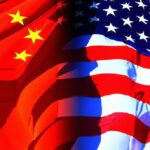In modern politics, the influence of money is undeniable. Large donations often sway decisions and policies, giving wealthy individuals and corporations undue power. As a result, the voices of ordinary citizens can be drowned out, leading to a lack of true democracy. This perpetuates a system where the interests of the rich take precedence over the needs of the general public. The impact of money in politics can lead to corruption, inequality, and a sense of disillusionment among voters. It is crucial to address this issue to ensure fairness and equality in the democratic process.
Table of Contents
- campaign contributions
- campaign finance laws
- corruption and scandals
- history of money in politics
- influence on policy decisions
- lobbying
- political action committees
- public perception and trust
- role of wealthy donors
- super PACs
(The impact of money in politics)
Money in politics has a profound impact on our democratic system. It can influence election outcomes and shape policies that may not always align with the interests of the general public. When big donors and special interest groups pour large sums of money into campaigns, it can give them undue influence over politicians once they are in office. This creates a system where the voices of everyday citizens can be drowned out by the moneyed interests of the few.
The role of money in politics raises concerns about the fairness and integrity of our electoral process. Candidates who have access to significant financial resources may have a competitive advantage over those who do not, making it difficult for grassroots candidates to compete on a level playing field. This can undermine the principle of equal representation and erode public trust in the political system.
Moreover, the influence of money in politics can lead to policies that prioritize the interests of wealthy donors over the needs of the broader population. This can result in a situation where policies are driven by profit motives rather than the common good, perpetuating inequality and social injustice. Ultimately, the impact of money in politics underscores the need for campaign finance reform to uphold the democratic ideals of fairness, transparency, and accountability.
campaign contributions
Campaign contributions play a crucial role in shaping the trajectory of political campaigns. These donations, often coming from corporations, special interest groups, and wealthy individuals, can significantly influence the outcome of elections. Candidates rely on these funds to run their campaigns, from producing advertisements to organizing rallies and events. The impact of money in politics is undeniable, as it can determine the visibility and success of a candidate in a competitive political landscape.
When large amounts of money flood into campaigns, it can create an uneven playing field, giving well-funded candidates an advantage over those with limited resources. This financial disparity can hinder the ability of the general public to have their voices heard and influence the political process. Moreover, the pressure to secure funding can lead candidates to prioritize the interests of their donors over the needs of the constituents they are meant to represent.
The issue of campaign contributions raises concerns about transparency and accountability in politics. The influx of undisclosed dark money into campaigns can obscure the sources of funding, making it difficult for the public to know who is backing a particular candidate. This lack of transparency can erode trust in the political system and undermine the democratic principles of fair representation and governance.
Furthermore, the influence of money in politics can perpetuate a cycle of corruption, where politicians are incentivized to cater to the demands of their donors in exchange for financial support. This can lead to policies that favor the interests of wealthy donors at the expense of the broader population. The influx of money from powerful entities can also drown out the voices of marginalized communities who may not have the resources to make substantial campaign contributions.
In conclusion, the impact of campaign contributions on politics is a complex and multifaceted issue that raises fundamental questions about the fairness and integrity of the electoral process. As we navigate the intersection of money and politics, it is essential to advocate for greater transparency, accountability, and equitable access to the political system to ensure that the voices of all citizens are heard and represented.
campaign finance laws
Campaign finance laws regulate how money is raised and spent in elections. They aim to prevent corruption and influence. These laws establish limits on contributions from individuals and organizations. Transparency is crucial as it ensures accountability and fairness in the political process. The impact of money in politics cannot be understated. Those with more money often have more influence. It can sway decisions and priorities towards those who can afford to donate. Many argue that this undermines the democratic system. Campaign finance laws attempt to level the playing field by placing restrictions. However, loopholes and loopholes can allow wealthy donors to still have significant influence. Efforts to reform these laws continually face challenges and resistance. The Supreme Court’s ruling in Citizens United in 2010 heightened these concerns. The decision allowed corporations and unions to spend unlimited amounts in support of political candidates. Critics fear this opens the door to even more money in politics and potential corruption. Despite these challenges, there have been strides towards greater transparency. Online databases now track campaign contributions for public viewing. Grassroots movements advocating for campaign finance reform have gained traction. The public’s awareness of the issue is growing, pushing for change. Ultimately, the impact of money in politics remains a contentious issue. Finding a balance between free speech and preventing corruption is complex. Campaign finance laws are continually evolving to address these concerns. The influence of money in politics will continue to shape the democratic process. Extensive reforms and public engagement will be crucial in ensuring a fair and equitable political system for all.
corruption and scandals
Corruption and scandals often plague the realm of politics, tainting the very foundation of democracy. The influence of money in politics has led to a multitude of ethical breaches and misconduct. The intertwining of wealth and power creates a breeding ground for corruption to flourish.
When money dictates political decisions, the interests of the public often take a back seat to the desires of the elite few. Scandals emerge when loopholes in campaign finance laws are exploited. The secrecy surrounding financial contributions allows for manipulative tactics to sway the course of politics.
Corruption erodes the trust that citizens have in their government, leading to a sense of disillusionment and apathy. The flourishing of scandals undermines the core principles of a functioning democracy, where transparency and accountability are paramount. The backroom deals and underhanded maneuvers feed a culture of distrust among the electorate.
The impact of money in politics extends beyond the surface, seeping into every institution and decision-making process. The repercussions of corruption are far-reaching, affecting the most vulnerable members of society disproportionately. The repercussions of corruption on public services can be dire, as resources are diverted away from areas in need.
Scandals serve as a stark reminder of the dangers of unchecked financial influence in politics. The exposure of corrupt practices can ignite public outrage and prompt calls for reform. However, the cycle of corruption often proves difficult to break, as vested interests become deeply entrenched in the political system.
Ultimately, the impact of money in politics on corruption and scandals underscores the urgent need for comprehensive campaign finance reform. Stricter regulations and increased transparency are crucial in restoring faith in the integrity of the political process. Only through collective action can we hope to combat the insidious influence of money on our democratic institutions.
(Politics and Money: How elections can impact finances)
history of money in politics
The history of money in politics dates back centuries. It has always played a significant role in shaping the course of political events. From ancient civilizations to modern democracies, the influence of wealth on governance is evident.
Powerful individuals and corporations have used money to gain access and leverage within political systems. This practice often leads to allegations of corruption and undermines the principles of democracy. The concept of campaign finance has evolved over time, with regulations put in place to ensure transparency and fairness.
In the United States, the role of money in politics has become a contentious issue. The Citizens United decision in 2010 opened the floodgates for unlimited corporate spending in elections, further blurring the lines between money and influence. This ruling has sparked debates about the fairness of the electoral process and the potential for wealthy interests to sway political decisions.
The history of money in politics reveals a complex interplay between wealth and power. It showcases the challenges of maintaining a level playing field in a system where resources can greatly impact outcomes. The influence of money in politics extends beyond elections to policymaking and governance, shaping the priorities and agendas of those in power.
As we reflect on the history of money in politics, it becomes clear that addressing the impact of money on governance is essential for upholding the values of democracy. Transparency, accountability, and integrity are crucial in preventing undue influence and preserving the integrity of our political institutions. Only through a concerted effort to reform campaign finance laws and promote ethical standards can we ensure that our democracy remains truly representative of the people.
influence on policy decisions
Policy decisions are greatly influenced by the amount of money in politics. Money can sway lawmakers’ opinions and direct their actions towards specific interests. This financial influence often leads to policies that benefit donors rather than the general public. This dynamic undermines the democratic process and creates a system where the wealthiest hold significant sway over legislative outcomes. The impact of money in politics is evident in the policy decisions made by elected officials. Donors often have access to decision-makers, allowing them to shape laws and regulations in their favor. As a result, the concerns of ordinary citizens may be disregarded in favor of the desires of wealthy donors. This imbalance can lead to policies that do not reflect the needs or priorities of the broader population. Furthermore, the influence of money in politics can perpetuate inequality and exacerbate existing social and economic disparities. Individuals and organizations with substantial financial resources can wield significant power in shaping public policy to their advantage. This imbalance in influence can hinder efforts to address pressing issues such as poverty, healthcare, and climate change. The disproportionate influence of money in politics can also erode public trust in government institutions. When policies are perceived as being driven by financial interests rather than the common good, citizens may become disillusioned with the political process. This disillusionment can lead to apathy, decreased civic engagement, and a weakening of democratic principles. To address these challenges, it is essential to enact meaningful campaign finance reform and increase transparency in political donations. By reducing the influence of money in politics, policymakers can make more informed decisions that prioritize the needs of all constituents. Ultimately, creating a fair and equitable system that upholds the values of democracy.
lobbying
Lobbying is a powerful tool in influencing political decisions by special interest groups. These groups often spend significant amounts of money on lobbying efforts to sway policymakers in their favor. The impact of lobbying on politics cannot be underestimated. It can shape legislation, regulations, and even the outcome of elections.
Money plays a crucial role in lobbying activities. Wealthy individuals and corporations leverage their financial resources to gain access to policymakers and push their agenda. This financial influence can result in policies that benefit the interests of these wealthy donors, often at the expense of the general public.
The relationship between money and politics is a complex one. While lobbying can be a legitimate way for groups to voice their concerns and advocate for their interests, it can also lead to corruption and the distortion of democratic processes. When money talks louder than the voices of ordinary citizens, the integrity of the political system is compromised.
Transparency in lobbying activities is essential to ensure accountability and prevent undue influence. Public disclosure of lobbying expenditures and activities can help shed light on the extent of financial interests at play in politics. This transparency allows the public to hold policymakers accountable and helps prevent backroom deals that serve the interests of a few at the expense of the many.
Campaign finance reform is another critical aspect of addressing the impact of money in politics. By imposing limits on campaign contributions and expenditures, policymakers can reduce the influence of money on political decision-making. Strengthening ethics regulations and enforcement mechanisms can also help curb the undue influence of money in politics and promote a more transparent and accountable government.
In conclusion, lobbying and the influence of money in politics are significant issues that require careful attention. While lobbying can be a legitimate way for groups to advocate for their interests, the disproportionate influence of money can undermine the integrity of the political system. Transparency, accountability, and campaign finance reform are essential steps in addressing these challenges and ensuring a fair and democratic political process.
political action committees
Political action committees, commonly known as PACs, play a significant role in American politics. These groups raise money from individuals, corporations, and unions to support political candidates or causes they believe in. PACs have become a prominent feature of the campaign finance system, influencing elections at all levels of government.
The impact of money in politics is undeniable, with PACs often channeling substantial funds into campaigns, enabling candidates to reach a broader audience through advertising and other means. This financial support can sway elections, giving candidates with strong PAC backing a competitive edge. Critics argue that this influence undermines the democratic process, allowing wealthy donors to wield disproportionate power over political outcomes.
Despite these criticisms, PACs have a legal right to engage in political activities, protected by the First Amendment. However, regulations limit the amount of money a PAC can contribute to a candidate or party committee, aiming to prevent corruption or the appearance of undue influence.
While PACs are supposed to operate independently from candidates, there are concerns about potential coordination, blurring the lines between the two entities. This raises questions about transparency and accountability in campaign finance. Voters may be left questioning who truly has the candidates’ interests at heart when large sums of money are involved in the political landscape.
Some argue that PACs give a voice to various interests and causes that may not otherwise be heard in the political arena. By pooling resources, like-minded individuals can support candidates who align with their beliefs, contributing to the diversity of ideas and perspectives in the democratic process.
Overall, the impact of money in politics, facilitated in part by political action committees, remains a topic of debate and scrutiny. Balancing the need for financial support in campaigns with preserving the integrity of the electoral system is an ongoing challenge that policymakers and the public continue to grapple with.
public perception and trust
Public perception and trust in the political landscape are significantly influenced by the impact of money in politics. The intertwining of financial interests with policymaking processes often raises concerns among citizens. This connection can dampen trust in the government’s ability to serve the public interest.
The influx of money into political campaigns can shape public opinion and sway decision-making processes. Individuals and groups with substantial financial resources may have undue influence over politicians and policy outcomes. This reality can create a perception of an uneven playing field where money speaks louder than the voice of the people.
As money flows into campaigns and lobbying efforts, the transparency of political processes is called into question. Lack of clear visibility into the sources and motives behind financial contributions can breed suspicion among the public. Trust in the integrity of elected officials and the political system as a whole can erode when financial interests are perceived to take precedence over public welfare.
Citizens may feel disheartened and sidelined when they believe that their representatives prioritize the agendas of wealthy donors over the needs of ordinary constituents. This disconnect can lead to a sense of disillusionment with the democratic process and a weakening of trust in political institutions.
The perception of corruption and favoritism can further fuel skepticism and distrust in the government. When money plays a significant role in shaping policies and decision-making, the public may question the authenticity of political actions and the sincerity of elected officials’ commitments to the common good.
For a healthy democracy to thrive, it is essential to address the influence of money in politics and rebuild public trust in the governing institutions. Transparency, accountability, and campaign finance reforms are crucial steps in restoring faith in the political system and ensuring that the voices of all citizens are heard and valued.
role of wealthy donors
Wealthy donors heavily influence politics by funding campaigns and super PACs. Their donations can sway election outcomes and shape policy decisions. These donors often have specific interests or agendas they hope to advance through their financial support.
The role of wealthy donors raises concerns about the potential for corruption and undue influence in the political process. Critics argue that these donors may have disproportionate power over elected officials, leading to policies that benefit the wealthy at the expense of the general public. This unequal influence can undermine the democratic principles of fairness and equality in the political system.
On the other hand, supporters of wealthy donors argue that their contributions are a form of free speech protected by the First Amendment. They believe that individuals should have the right to support candidates and causes they believe in, regardless of their wealth. Additionally, some argue that wealthy donors play a crucial role in funding political campaigns and supporting candidates who align with their values.
The impact of money in politics is a complex and contentious issue that continues to generate debate and controversy. As the cost of political campaigns continues to rise, the role of wealthy donors is likely to remain a significant factor in shaping the political landscape. It is essential for policymakers and the public to consider these issues carefully and work towards a political system that is fair, transparent, and representative of all citizens’ interests.
super PACs
Super PACs, or political action committees, play a significant role in the influence of money in politics. These organizations can raise and spend unlimited amounts of money to support or oppose political candidates. They are not allowed to donate directly to candidates or parties but can engage in independent spending to advocate for specific issues or candidates. This has led to concerns about the potential for wealthy individuals and corporations to have outsized influence over election outcomes.
The impact of Super PACs can be seen in the rise of negative campaigning and the flood of money into political advertisements. Candidates and parties often rely on Super PAC support to fund their campaigns, leading to a growing dependence on big donors to stay competitive. This can create a system where those with more money have more influence over the political process, potentially distorting priorities and policies to favor the interests of wealthy donors.
Super PACs have also been criticized for operating without the same transparency and accountability as traditional campaign finance channels. Donors to Super PACs can remain anonymous, making it difficult for the public to know who is funding political ads and influencing elections. This lack of transparency raises concerns about the potential for corruption and the undermining of the democratic process.
Despite these criticisms, Super PACs continue to play a significant role in shaping the political landscape. Their ability to raise and spend unlimited funds gives them a considerable advantage in influencing elections and public opinion. As long as the current campaign finance laws remain in place, Super PACs are likely to continue to be a dominant force in American politics, raising questions about the impact of money on the democratic process.
Overall, the influence of Super PACs highlights the complex relationship between money and politics in the United States. While these organizations can provide critical support to candidates and causes, their unchecked power raises important questions about the fairness and integrity of the electoral system. As debates about campaign finance reform continue, the role of Super PACs will remain a contentious issue in the ongoing effort to create a more transparent and equitable political process.










